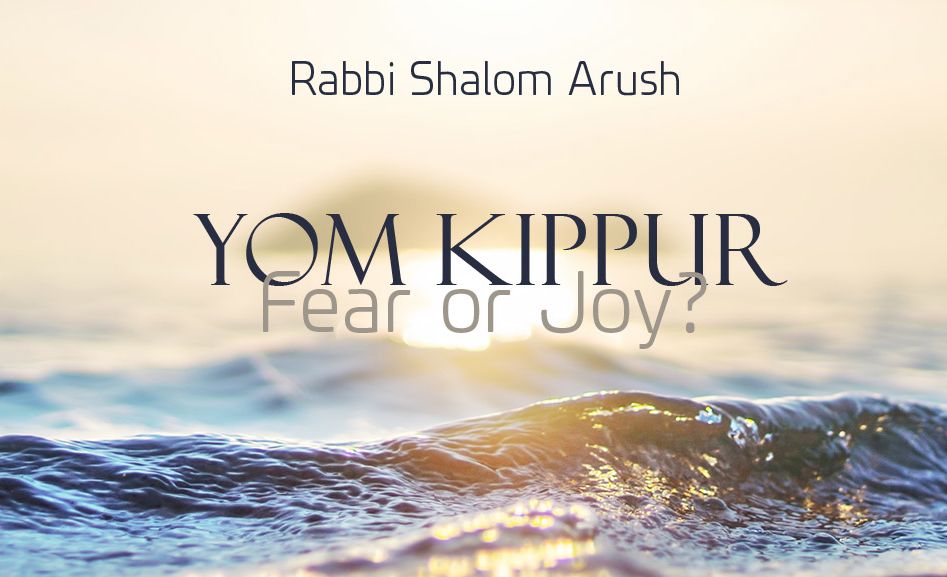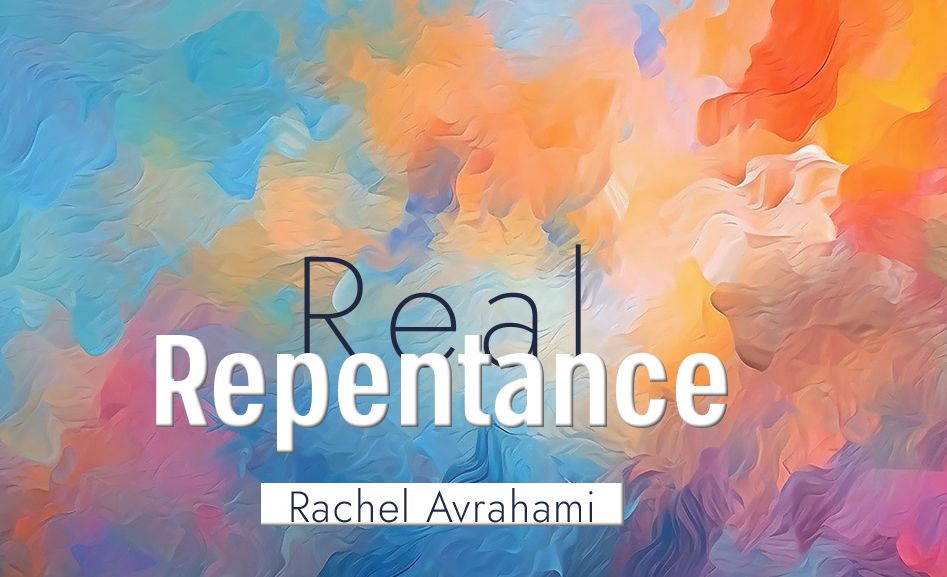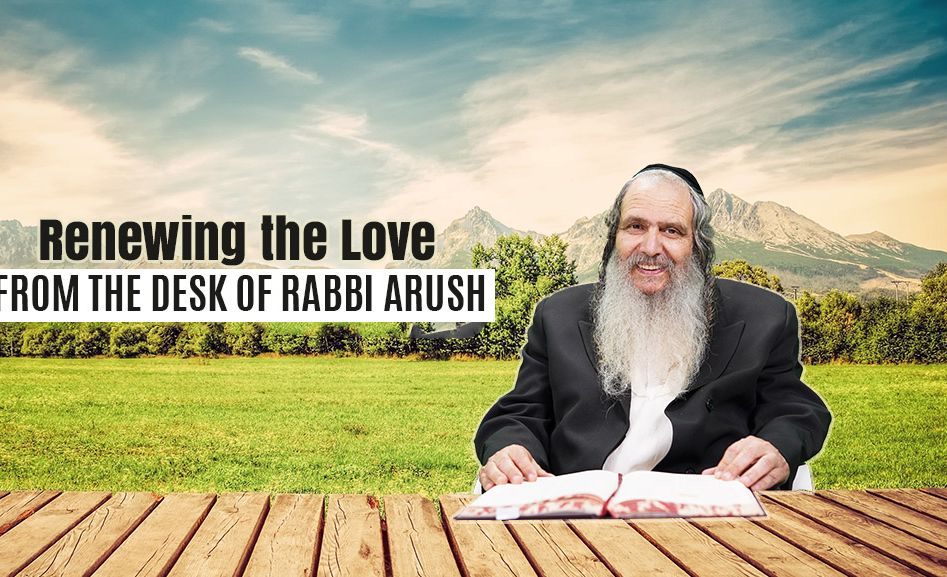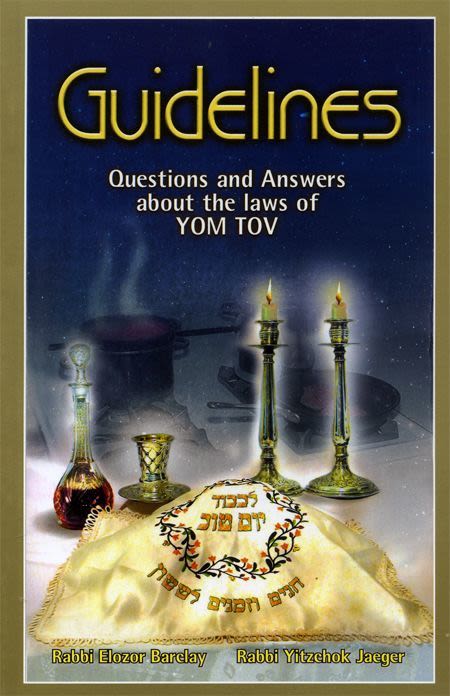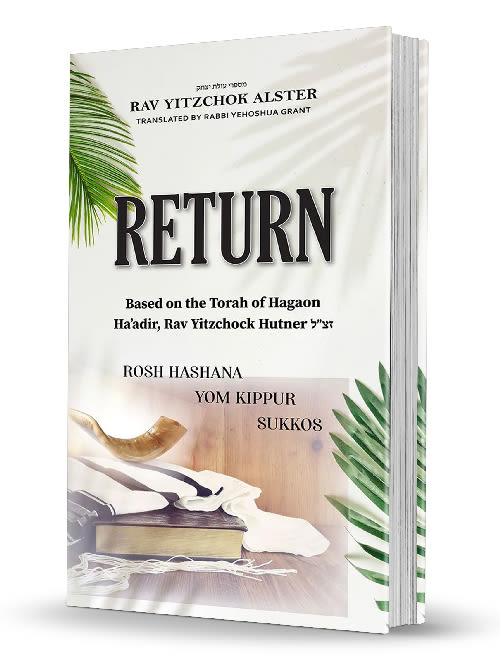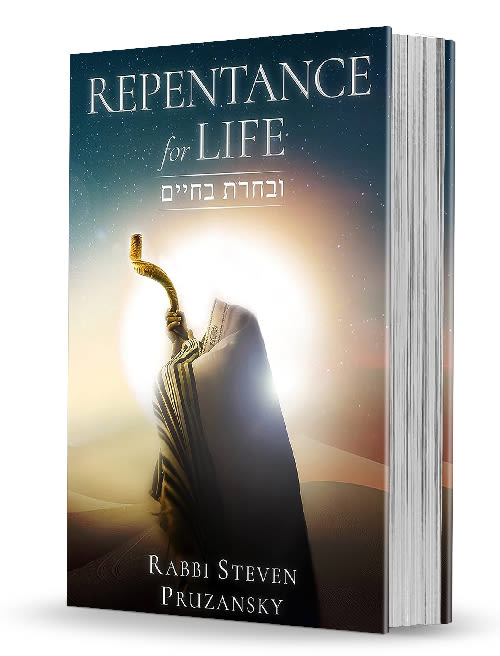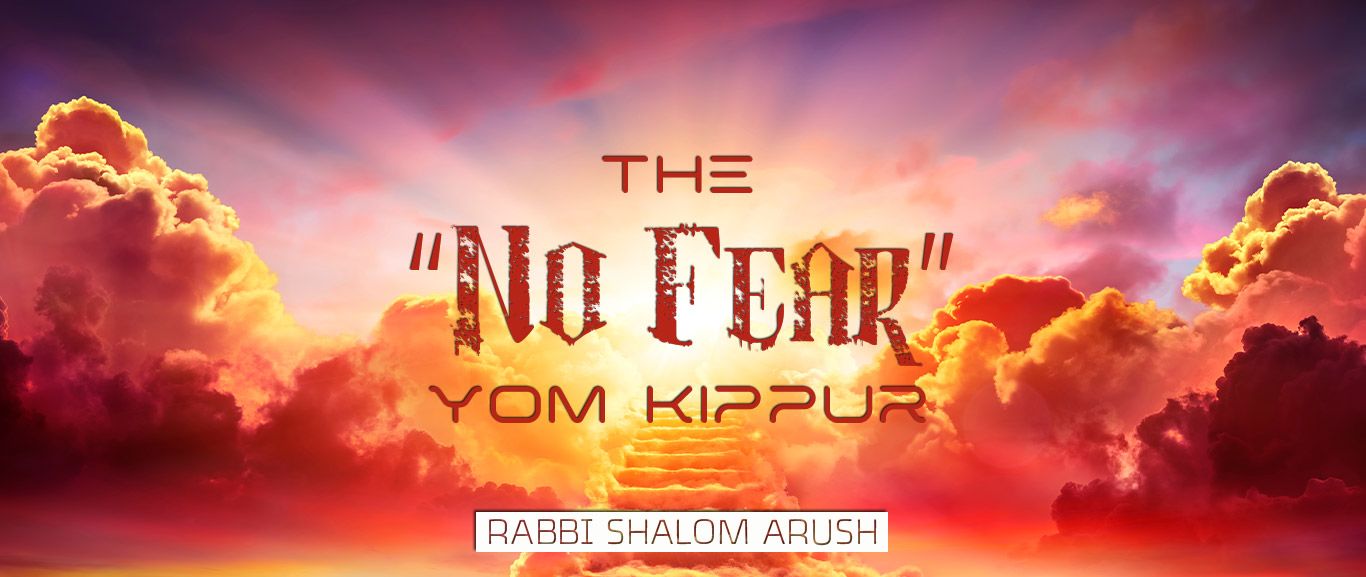
The “No Fear” Yom Kippur
A "no fear" Yom Kippur? Who ever heard of such a thing? It's not only possible – it's easy! Sound incredible? It's not – it's a guarantee from Rebbe Nachman...

How would you like to have a no-fear Yom Kippur? It’s not only possible – it’s easy! Simply judge yourself before the Heavenly Court judges you. Does that sound incredible? It’s not – it’s a guarantee from Rebbe Nachman.
Rebbe Nachman teaches that if a person judges himself, he is spared of all sorts of fears and tribulations (see Likutei Moharan, I:16). Our sages emphasize (see Midrash Raba, Devarim 5:5) that where there is judgment on earth, there is no judgment in Heaven. Essentially, this means that there is no double jeopardy in Hashem’s system of jurisprudence: if a person judges himself, then the Heavenly Court is not allowed to judge him for the same misdeed or offense, for that would be double jeopardy.
Rebbe Nachman explains that when a person fails to judge himself, the stern judgments against him manifest themselves in the physical world and become all types of elements that torment him in some way. So, when a person does daily self-assessment – which means that he is judging himself for everything’s he has done in the last 24 hours – he cannot be judged in the Heavenly Court and he circumvents all types of headaches in life that his unaccounted-for misdeeds would have caused him. Therefore, Rabbi Levi Yitzchak Binder of blessed memory urged us to judge ourselves daily about every detail in life – how we behave with our loved ones, how we utilize our time, how we speak, how we pray, and so forth.
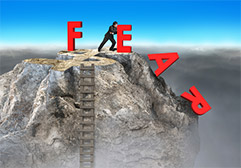 Self-assessment is a vital part of our daily personal prayer session. A person should tell Hashem everything – good or the opposite, complimentary or otherwise – with no inhibitions. Even if he did the worst thing in the world, he should simply confess, express his remorse and ask for Hashem’s help to do better. With self-assessment, a person shows Hashem that he’s not trying to sweep his misdeeds under the rug. He recognizes his shortcomings and shows his willingness to improve. Simply by confessing, one invokes Divine mercy and compassion. King Solomon says in Proverbs that one who confesses and does his best to avoid transgressing in the future will be comforted.
Self-assessment is a vital part of our daily personal prayer session. A person should tell Hashem everything – good or the opposite, complimentary or otherwise – with no inhibitions. Even if he did the worst thing in the world, he should simply confess, express his remorse and ask for Hashem’s help to do better. With self-assessment, a person shows Hashem that he’s not trying to sweep his misdeeds under the rug. He recognizes his shortcomings and shows his willingness to improve. Simply by confessing, one invokes Divine mercy and compassion. King Solomon says in Proverbs that one who confesses and does his best to avoid transgressing in the future will be comforted.
Self-assessment also includes reviewing all the good deeds that Hashem enabled us to do in the last 24 hours and thanking Him for giving us the privilege and opportunity of doing them. Like a merchant counting his inventory, we should recount every mitzvah and amenity – both spiritual and material – and express our gratitude for them.
Don’t be stingy with words – thank Hashem with all your heart. This gratitude within our self-assessment enables us to judge ourselves happily, without persecuting ourselves or falling into depression because of any mistakes or misdeeds we may have done.
No day should pass without self-assessment, including Shabbat and holidays. Even though Shabbat is a day of joy and pleasure, and our main personal prayer on Shabbat should focus on gratitude and praise to Hashem, one who does daily personal prayer and engages in daily self-assessment will feel the need to do so on Shabbat as well. This concept is anchored in Jewish law, for the Rama says that if a person will feel pleasure by crying, thus relieving himself of his sorrow, he is permitted to cry on Shabbat (see Rama, Shulchan Oruch, Orach Chaim 288:2). By the same token, one who takes pleasure in self-assessment and in doing teshuvah on Shabbat, for he knows that he is cleansing his soul, may certainly do so.
Rabbi Eliezer says, “Return to Hashem the day before you die” (see Avot D’Rebbe Natan, 15). His pupils ask – who can possibly know when they’re going to die? Rebbe Eliezer answers, “Then do teshuvah today, because you might die tomorrow; this way, you’ll be engaged in teshuvah your entire life.” According to the holy Tanna Rabbi Eliezer, one must do teshuvah on Shabbat in case he dies on Sunday. In other words, teshuvah and self-assessment must be a daily endeavor.
Shabbat and Yom Kippur, which the Torah calls Shabbat Shabbaton, are special days for teshuvah since a person is on a much higher spiritual plane on these days. The Hebrew letters of Shabbat – ש ב ת – are also the root letters of teshuva, or penitence, literally returning to Hashem. Although our main focus during personal prayer is praise and gratitude, we should do teshuvah as well so that all our days will include our efforts to return to Hashem with all our hearts.
My teacher Rabbi Yehuda Zev Leibowitz of blessed and saintly memory, quotes in his book Minchat Yehuda Rabbi Chaim David Azulai (The Chid’a, ob”m) who says in the name of Rabbi Chaim Vital ob”m that when a person dies, the accompanying angels lead his soul down thousands of different paths, each with a frightening ensnarement that wants to grab the soul and throw it into purgatory. But, there’s one path that’s called “the path of life”; it’s dark at first, but then opens up to a bright light.
We don’t intend to frighten the reader, but we must remember that once a person leaves this world, he can no longer do teshuvah. By doing daily self-assessment in this world, he will avoid untold suffering in the next world. Teshuvah is the “path of life” that might look dark compared to the false glitter of material amenities, but it leads to an eternity of bright light and indescribable gratification.
As Rebbe Nachman explains in Likutei Moharan I:52, a person must take a fault, bad habit or character flaw one by one, devoting a healthy segment of daily personal prayer in praying to overcome it until he finally does overcome and rectify it. Then, he should move on to another fault or flaw. Over the years, such a person will do wonders with himself.


